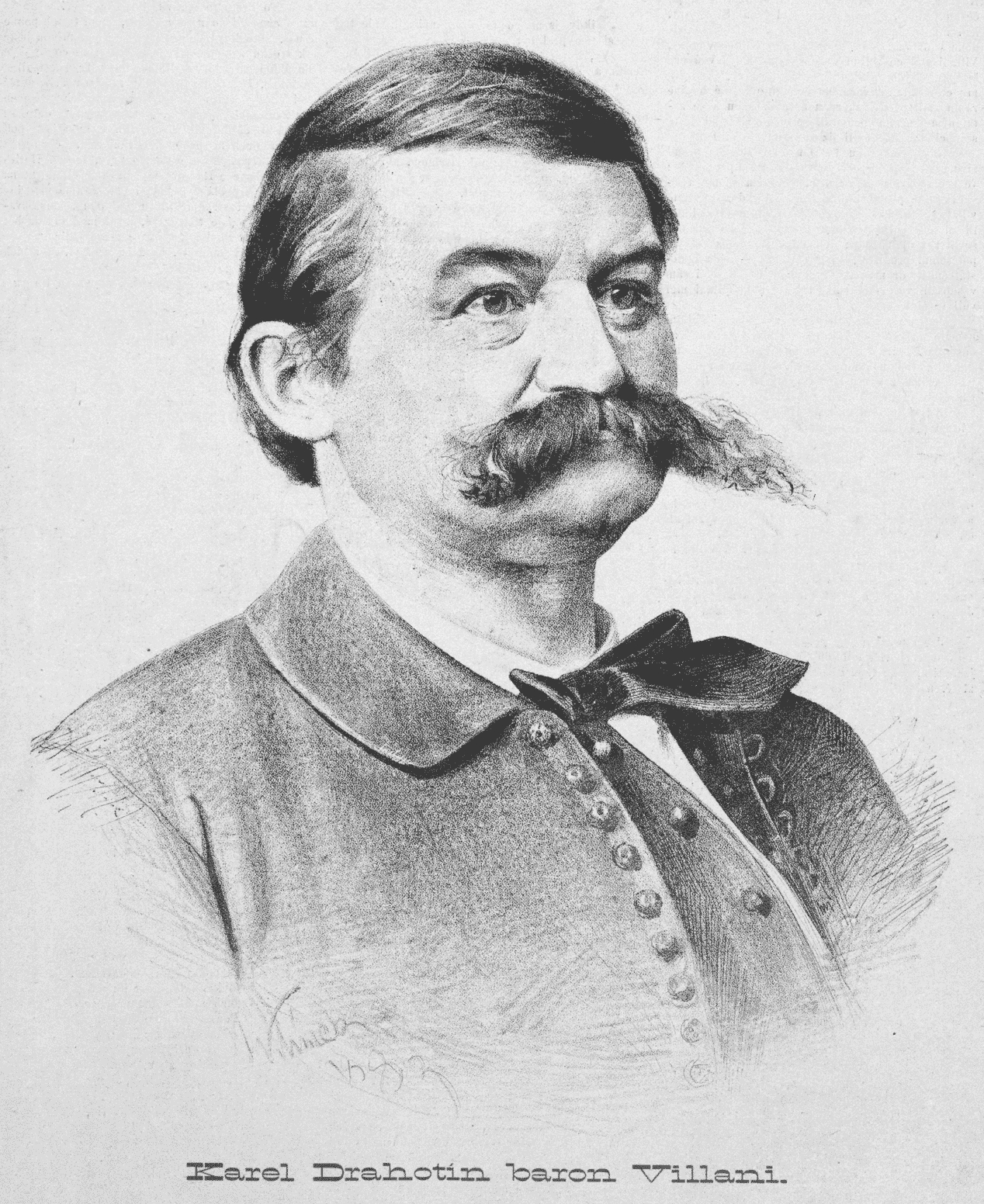Conference on the occasion of the 140th anniversary of the death of Karel Drahotín Villani, the first mayor of the Benešov district
Organizers:
Masaryk Institute and Archives of the Academy of Sciences of the Czech Republic, v. v. i., State Regional Archives in Prague and Museum of Podblanicko, p. o.,
Karel Drahotín Villani (1818-1883) was a Czech nobleman and politician, who is known as the leader of the armed corps Svornost in the revolutionary year 1848, but he left a much more significant mark as a member of the Reich Council and the Provincial Assembly, as well as a representative of the elected self-government. In 1865 he became the first mayor of the self-governing district of Benešov and remained so until 1869, when the Emperor refused to grant his confirmation for his re-election. Villani is thus one of the "founding generation" of district mayors, whose attitudes, ideas and experience shaped a new intermediate level of public administration between the municipal and provincial levels.
From the mid-19th century onwards, district administration was a progressive and extremely effective instrument of state administration, which was to be extended, supported and in a way legitimised by its self-governing dimension. However, the original intention of the Minister of the Interior, Franz Stadion, was not realised in the case of the introduction of district self-government until the mid-1960s. Although only a few countries of the so-called Pre-Lithuanian Commonwealth made use of the possibilities provided by the law at that time, this two-track model represents an interesting and hitherto almost completely neglected aspect of the development of modern public administration in Central Europe. District self-government quickly became not only an important factor of regional development and cooperation, but also a basis for electoral and political agitation of political parties or a support for the future achievement of state independence. In the interwar period, the importance and role of district self-government were significantly weakened, but after 1945 it became - albeit very formally in the environment of a totalitarian state - once again an important element of the reformed administrative system. Thus, in various forms and with different competences, the districts - and with them the variously strong elements of district self-government - functioned for almost a century and a half. Their importance and success is still evidenced by a deeply rooted awareness of district administration, even though it has been a thing of the past for two decades.
We particularly welcome contributions from the field of district administration, or with obvious continuity with it. Furthermore, general or theoretical contributions. All this in a long time span from the second half of the 19th century to the present.
Thematic headings:
- New forms of self-government and their reception
- The relationship between state administration and district self-government
- Legal and ideological foundations of district self-government
- The position of district self-government within public administration and its relationship to other levels of government
- Official practice of district self-government bodies
- Business/economics and district government
- Elites versus district government
- Personalities of district government
Proposals for papers with the title of the paper and a brief annotation of about 15 lines should be sent to Miroslava Breburdová at miroslava.breburdova@soapraha.cz by 20 June 2023 . The selection of papers will be made by the organizing committee, authors will be contacted in early July 2023.
Please contact Michal Sejk, Head of the State District Archives Benešov, with any questions regarding organizational matters: michal.sejk@soapraha.cz
